Not many desert rock albums have captured the Sentinel Daily collective imagination in 2022 quite like Ephemeral by New Mexico’s Blue Heron… so of course we were keen to feature them as part of our year ending feature strand These We Have Loved. To do so, I caught up with the band’s vocalist Jadd Schickler to find out a bit more about the album and the men behind it’s construction…
Congratulations on Ephemeral – it’s been a constant on the Sentinel Daily office stereo for a fair while now! Are you pleased with the overall reaction that the album engendered now that the dust of release time has settled? “Thanks for the congratulations, and for digging the record! We’re absolutely stoked with the response and enthusiasm our first album has gotten, absolutely. Folks really seemed to key into the things we dig about it ourselves, from the sound to the vibe to the diversity of the songs. We also heard some things from listeners and the media that we didn’t necessarily expect or hear, like comparisons to Clutch and Soundgarden, but hell, those are compliments too and we humbly accept them”.
We’ll look more thoroughly at the individual tracks on the album later – but can you give those of our listeners without much grounding in the sound of the band a bit of a background to Blue Heron? What would you say were the key influences and motivators for the band in putting the album together? And can you tell us a little about the personnel on this album? “Well, our guitarist Mike Chavez and myself played together a long time ago in the band Spiritu. It was very desert rock inspired, bands like Kyuss and Fu Manchu were original touchstones, plus being that New Mexico is also a desert, I think we felt a valid connection to the desert rock style, even though that’s associated with California. We were in that band for five years and eventually things came to an end, but at some point we both started to get the itch to play again. I can’t speak for exactly why Chav was interested in circling back to working with me, (laughs), but for my part, I can say that what I learned in the other bands I spent time in after Spiritu was that Chav had turned me into a complete tone snob, because nobody else has a guitar tone like his. I once even asked him to come by a rehearsal for another band I was in to try to show that guitarist how to get a deeper, fuller tone! At some point I asked Chav if he wanted to try working together again, and he was up for it. We didn’t resurrect the Spiritu name because we thought it made sense to start with something completely new, and he’d been working on some song skeletons by himself under this Blue Heron moniker, so I suggested we adopt that for this new thing we were going to try. The next piece was a drummer, and a good friend of ours, Big Steve Schmidlapp, suggested we try to connect with this local drummer Ricardo Sanchez. I didn’t know him, but I found him online and reached out, and although he was standoffish initially, he got very friendly when he figured out that I was one of the founders of the old MeteorCity record label, because he actually had several of the first CDs we ever released. We also brought in a bassist Ricardo knew of, but after several months together, it was clear that Chav, Ricardo and I were on the same wavelength with what we wanted to play, while the bassist wasn’t. Things came full circle when, about two weeks before our first booked gig, we asked Big Steve, someone we only really knew as a guitar player, if he wanted to step in and take over bass duties for us at the show. He said what the hell, gave it a try, and learned our set within those two weeks, after which he said he’d be down to keep going for a while on bass and see how things went. That was just over three years ago, and I think we’re all about as pleased as we can be at how it turned out, with three of us who’ve known each other for more than twenty years ending up in a new band together, along with probably the best drummer any of us have ever played with, creating our own new iteration of the desert rock sound we love.
As for the album, we didn’t go in with a specific concept, we simply started writing and let our various influences dictate where things went. We all have certain bands we like in common, but also each have influences that are personal and maybe aren’t as much part of the connective tissue. For instance, Ricardo plays in a ton of bands in different styles, which means he’s got the ability to grab bits and pieces from well outside one genre niche to keep what he does unexpected and interesting. Chav and I both have decades of ingesting doom and stoner rock informing what we do, while Steve has a lot of eighties and nineties metal in his background, but we’re also all steeped in classic seventies riff-rock as well as grunge. There’s very little setting out to create songs in a specific style, everything usually just evolves from a riff that catches our attention because the groove and the sensibility is right. It may not sound like we have a ton of control over what we write, but I guess to me, that’s part of why it works, because I think all of us trust that if we just follow a riff or groove that has the right feel, we’ll lead ourselves to create a song that simultaneously sounds like the culmination of everything all of us have heard and nothing but Blue Heron at the same time”.
Give us a brief insight into each of the tracks on the album – Futurola is the opening track. “Futurola started as a riff progression that Chav, Big Steve and Ricardo worked on during the pandemic when they were practicing a bit more because no one had much else to do. The lyrics are about the dangers of following demagogues, and of people who allow themselves to be led and manipulated without engaging their own consciences and common sense to help them maintain a grasp on reason”.
Next up – Sayonara. “When we were building the structure of this track, we had a part we called “the Acid King riff” and “the Planet Caravan section” and we went back and forth a lot messing with the unusual time signature of the verse section during the first half of the song. We didn’t set out to create a thirteen-minute song, but it just kind of unfolded into these movements and it made sense to give them the space to be as long as they needed to. The lyrics are kind of a weird hybrid between a discouraged account of spending one’s life in a small town, and the story of a young man chosen to go off into space and take part in an interstellar battle for the fate of the universe. The plots do connect, haha, but overall this is probably my favorite song I’ve ever been part of writing and playing. And I LOVE playing it live, regardless of its length. This was also the first song we finished after Big Steve joined the band formally, and it really gave a sense of how wide open what we can do is.”
Push The Sky is next. “This was one of the first songs we finished as the band was coming together and Chav, Ricardo and I were getting familiar with playing and writing together. It’s still a great one to play, lots of energy. The lyrics are a bit personal for me, written about my father as he was in the last few months of his life, both in tribute to him and venting at some of his choices, not to mention raging a little bit about the senselessness of death”.
What about Infiniton Field? “This is an instrumental that Chav created entirely on his own. We were looking to fill out the album a little bit, and for those of us old enough to remember when the norm was to think about albums as start to finish listening experiences, the idea of short connective songs and as a way to settle things down between one main track and the next is always appealing. I was actually asking him to send us a different song that I remembered when he sent this one, and the band heard it and really wanted to work it into the album, so we placed here as kind of a reset for Side B”.
The Buck – tell us a bit about this track. “This song started with a Steve bass riff, and again, this was one the other guys developed a bit on their own when they were practicing and writing a lot during lockdowns. Musically it’s fun because it’s not trying to be just crushing and heavy throughout, it’s a great use of spaciousness and tones and openness. The lyrics are fairly existential, some of which I lifted and rewrote from a section of a Chaucer poem about the Minotaur, the rest about the value of hardships in our lives to give what we do meaning”.
The Buck is followed by Black Blood of the Earth. “If I remember right, this song actually started with the frenetic drum beat you hear in the opening sections, Ricardo started playing it in practice and Chav added that thrashy riff over it and we just started expanding it from there. It really came together when we fused the first half of the song with that doomy jam in the second portion, and I ended up writing the lyrics as a partial joke to myself about the movie Big Trouble in Little China… a couple folks have picked up on that and asked about it, and I actually love that movie so it’s not like a throwaway subject! I thought it would be cool to write from two perspectives and reversed from what might seem obvious, so the sections as Jack Burton, the hero of the movie, are the harsh and melodic vocals that kind of drift and float over the spacey instrumental parts. It was a fun challenge putting all these things together in this song, and the desire from all the guys to try weird unexpected things helps us make what we do really fun each time”.
The penultimate track on the album is Where One Went Together. “Another song that’s entirely Chav, this one had existed for quite some time. He once called it his breakup song, so it’s sort of a melancholy instrumental ballad, and I always wanted to release it on something we worked on together even though I’m not on it, haha. I just think it’s really pretty and kind of bittersweet, a bit like Capsized by Kyuss in that way”.
Salvage rounds things out. “Another song that started with our own funny internal reference points about what it was, I remember referring to one part as the YOB section and another part as sounding like Foreigner, but by the time we worked out the last couple minutes where everything falls apart and then comes back together, it didn’t really resemble anything else we could think of. The lyrics are about the cycles of humankind building and then destroying our own progress in a very literal way, with thoughts toward the ancient Egyptians, Planet of the Apes, Battlestar Gallactica, and the ways human civilization reaches these incredible heights and then gets blasted back by hundreds or thousands of years, only to start again”.
How do you think 2022 has been overall for our kind of music? And who’s been impressing you in the world of heavy rock and metal this year? “As someone who’s been working with this music since the dawn of the internet and the origination of stoner/desert rock/doom as a global stylistic movement, I always think it’s a good year. People who think heavy music is dead or isn’t growing just aren’t listening hard enough. There are consistently loads of bands motivated to write and play their own iterations of this sound, some a bit close to the original source material, but others creating endlessly interesting explorations of what it can be at its best. As to who’s impressing me, I’m of course biased as a guy working at a label, but I can say that bands like The Otolith, Jack Harlon & The Dead Crows, Besvärjelsen, Caustic Casanova, Ruby the Hatchet, Heavy Temple and REZN are among my favourite young and ambitious bands today”.
Ephemeral is obviously an album rooted in classic styles and feel, yet you’ve managed to keep it from sounding like a nostalgia fest – Was that a difficult trick to pull off, or did you not think too much about things like that whilst recording? “Despite all of the guys in our band having vast backgrounds as fans and listeners, for whatever reason, our writing process isn’t quite so conscious as to be able to intentionally sound like a throwback band, or do a vintage thing, or avoid it… we start messing around, someone throws out a riff or a rhythm or a progression, and either it catches in our ears and brains and we start building on it, or we don’t. If we dig the direction, if it moves us and doesn’t sound obvious or familiar or redundant, we’ll keep it and continue to refine it, each member fleshing out his own area while contributing to the whole. I think what we do will always in some ways resonate with what’s come before us, but the hope is that it will never feel like we’re actively just mining the past for previously-used ideas. We certainly don’t think of ourselves as backward-looking in what we write, although we obviously can’t un-hear what we’ve heard all our lives. So it’s there, but rehashing it is never a goal”.
Anything else you’d like to tell the readers of Sentinel Daily about the album? Or the band in general? What are the band’s plans for 2023 and beyond? “In 2023 we’ll have a new split release coming on Ripple Music with the Austin band High Desert Queen, as well as a track on Magnetic Eye Records’ Best of Soundgarden Redux project. All of those recordings are already finished, so now we’re just writing again and thinking ahead to our next full album and the chance to turn more folks on to what we’re doing. We really appreciate the support of those who’ve been digging our record and our shows, and looking forward to pushing ourselves even more next year!”


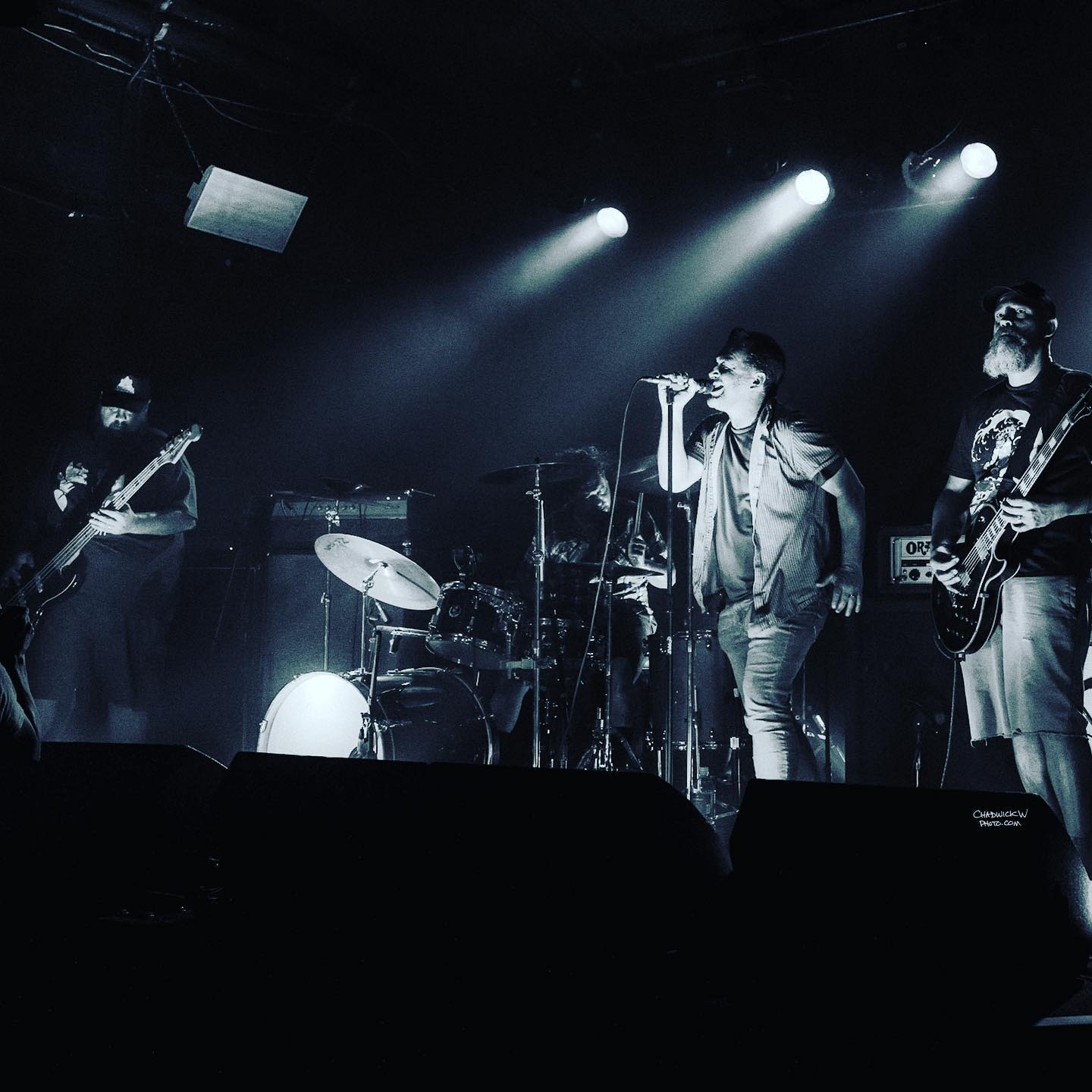
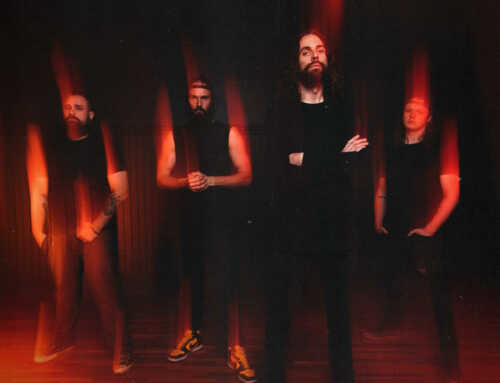
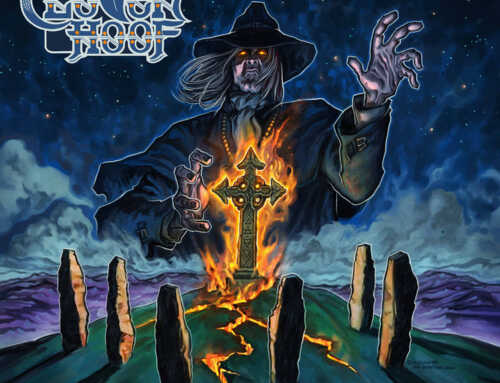
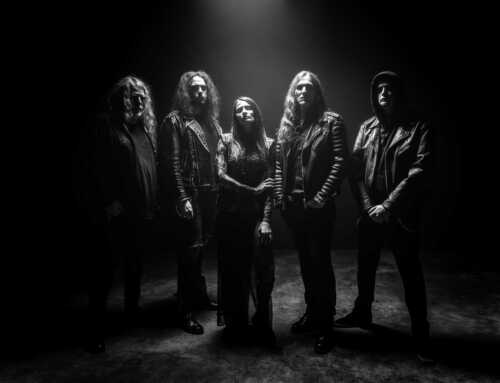
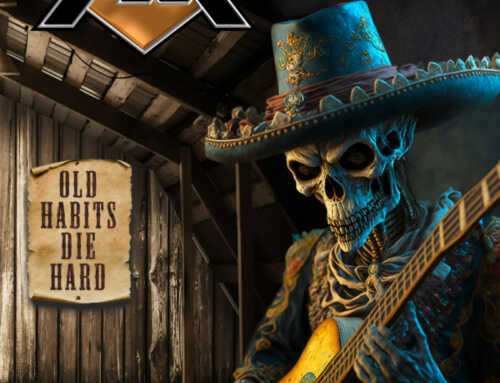
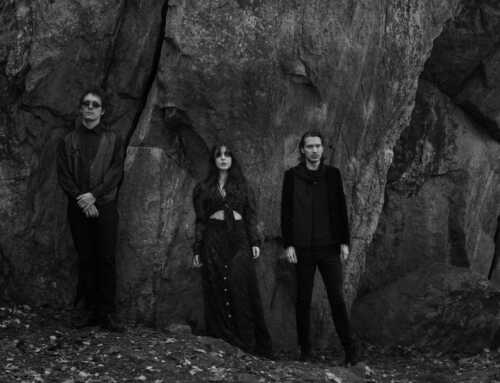
Leave A Comment